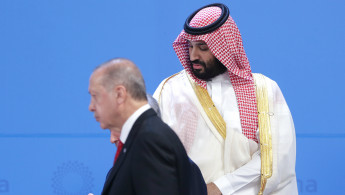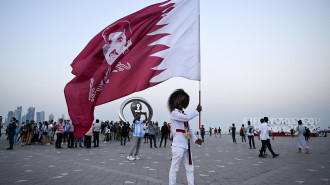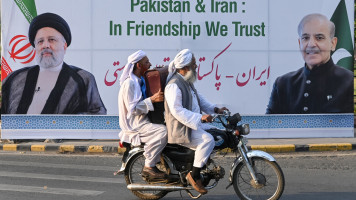'A real friend speaks bitter truths': Khashoggi's murder casts a dark shadow on Turkey-Saudi relations
Before the world discovers the details of what really happened to Jamal inside the Saudi consulate, the Saudi officials attempted to pin his "assumed disappearance" at then on Turkey.
Riyadh's Consul General in Istanbul said that Jamal is not in consulate and not in Saudi Arabia. Crown Prince Mohammed bin Salman (MbS) affirmed that Khashoggi left the building not long after he entered, suggesting that Turkish officials are responsible for Khashoggi's disappearance and the fate of their citizen.
In this context, Khashoggi's case was handled with high precession in Ankara not only because the initial indications were pointing to the fact that the Saudi journalist never left the consulate alive, but also because Turkish officials felt that their country might be the victim of a Saudi plot targeting it.
Within a few days, the Turkish intelligence managed to draw the full picture of what really happened in there. Photos, videos, voice recordings, and documents taken from surveillance cameras, security cameras, call interceptions, and even what is believed to be spying bugs all confirmed that Khashoggi was murdered inside his country's consulate in Istanbul.
Instead of admitting the crime, Saudi officials kept denying their connection to it, refused to fully cooperate with their Turkish counterparts and the Saudi media went on all offensive against Ankara.
 |
Saudi officials kept denying their connection to it, refused to fully cooperate with their Turkish counterparts and the Saudi media went on all offensive against Ankara |  |
To Turkish officials, the premeditated operation was not only meant to kill Jamal, but also to strangle Turkey diplomatically, economically and discredit its security.
The perpetrates chose Turkey, utilised its diplomatic immunity, and used means on its soil to kill Khashoggi. For Ankara, there has to be a price for this and expected nothing less than confessing the crime, persecuting the perpetrators and those who gave them the orders to do so to the highest level possible in Saudi Arabia.
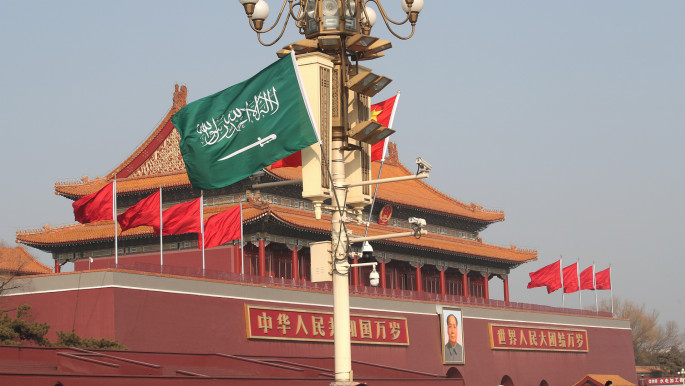 |
|
| Read also: How Jamal Khashoggi's death brought China and Saudi Arabia closer together |
Prince Khaled al-Faisal, emir of the Makkah Province and adviser to the Custodian of the Two Holy Mosques King Salman reportedly offered Turkey a package of inducements to drop the case – "including financial aid and investments to help Turkey's struggling economy, and an end to a Saudi embargo on Qatar", but President Erdogan angrily rejected the offer as "a political bribe".
Turkish officials affirmed their commitment to reveal the full truth, and in an attempt to push Saudi officials to confess, Turkey started to leak details of the story to the local and international media. This helped establish a swift victory and control over narrative, forcing Saudi officials to change their version of the story over and over again to the extent that US President Trump dubbed the Saudi cover up as "the worst cover up in the history of cover ups".
Although Erdogan didn't name the Saudi crown prince as a main suspect for giving the orders to kill Khashoggi, it was understood from the evidence and the statements of Turkish officials that if he was not directly involved in the issue, he must have been aware of it at least, since most of the perpetrators and those involved in it are very close to him.
In another attempt to buy Turkey's silence on the issue, MbS said, "Many people are using this painful thing to drive a wedge between Saudi Arabia and Turkey... they would not be able to do that as long as the Saudi king, the Saudi crown prince and Turkey's President Recep Tayyip Erdogan are alive," but this move did not ease the Turkish pressure and Ankara kept closing in on MbS.
Ultimately, Saudi officials could not have handled Khashoggi's case any worse than they did. They have gone from claiming they knew nothing of Khashoggi's whereabouts, to saying he died during a brawl-fist fight inside the consulate, to conceding that his murder may have been premeditated and part of a rogue operation that no senior Saudi official knew about, including the crown prince.
In Turkey, MbS was largely seen as Abu Dhabi's Crown Prince's 'man in Saudi Arabia'. Over the last few years, the Turkish establishment realised that when it comes to regional politics, MbS is actually executing an Emirati agenda rather than a genuine Saudi one.
Soon after rising to power, MbS re-embraced the anti-Arab revolutions camp lead by the UAE and offered more support for Egypt's Sisi and Libya's rogue general Haftar.
Out of the blue, the Saudi crown prince lead an embargo on Qatar that forced both Ankara and Doha to become closer to Iran, adopted a closer policy to the Assad regime, supported the PYD in Syria and the secession referendum of KRG in Iraq, and sided with Israel against the Palestinians in the "deal of century". In other words, MbS represented an all anti-Turkey in the region.
In order to dilute the effects of his toxic policies, Ankara worked on maintaining healthy and close relations with his father, King Salman, hoping that one day the crown prince will come to realise that he is marching in the wrong direction and that good Turkey-Saudi relations is the key to stability in the region. But this strategy did not work for the Turks also.
By setting private sessions to display secret evidences on the involvement of high level Saudi officials in the crime, Ankara managed to convince the CIA, several members of the US congress, and Western powers of its conclusions.
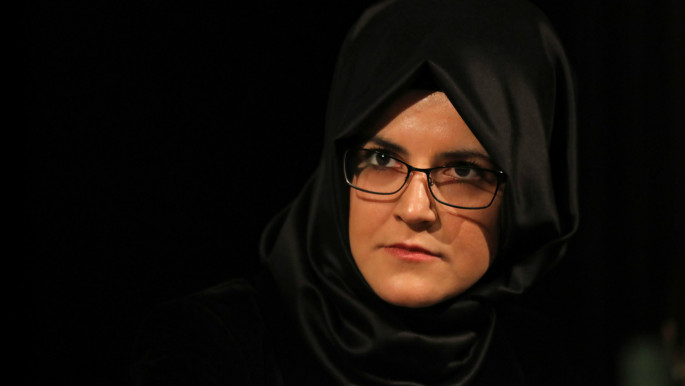 |
|
| Read also: Khashoggi's fiancee Hatice Cengiz: Jamal's murder changed everything. MbS must be punished |
The CIA went even further to draw its own conclusions based on its own assessment to what happened. The CIA concluded that the Saudi crown prince ordered the assassination of Jamal. Likewise, United Nations human rights investigator Agnes Callamard concluded independently that the crown prince ordered Khashoggi's murder.
The crime further jeopardised the already strained Turkish- Saudi relations. To some Saudis, Turkey was trying to undermine MbS and drive a wedge between him and his father, hoping that the murder would block his way to the thrown.
However, to some other pundits, Turkey would overplay its hands if this was its plan. Instead, Ankara pushed the US to be involved in the issue because Washington has the big stick to punish MbS for the crime.
With Trump shielding the Crown Prince of Saudi Arabia, Turkey stressed that it separates the Khashoggi killing from its relations with the Gulf kingdom.
Lately, the Turkish president affirmed that, "Turkey has always seen, and continues to see, the kingdom as its friend and ally and this is why it made a clear and unmistakable distinction between the thugs who murdered Khashoggi and King Salman and his loyal subjects."
From the Turkish perspective, however, "Our long-standing friendship does not necessarily entail silence. Quite the contrary, as the Turkish proverb goes, "A real friend speaks bitter truths."
But this is not necessarily how the Saudi government is looking at the same issue. For MbS, it was time to hit back. According to MEE, Saudi Arabia had a strategic plan to take Turkey down, a plan that involved "all possible tools to pressure Erdogan's government, weaken him, and keep him busy with domestic issues".
The Saudi government is making everything in its hands to oppose Turkey regionally. The latest Saudi stance in backing Greek Cyprus against Ankara's stance in the Eastern Mediterranean is an example.
 |
The two regional powers are cautious not to turn their disagreements or conflicts into a direct confrontation |  |
Although reports suggest Saudi Arabia is engaged in propaganda campaigns against Turkey, such discouraging its citizens not to visit Turkey, there is no evidence that Saudi Arabia has a strategic plan against Turkey or is capable of executing one.
The two regional powers are cautious not to turn their disagreements or conflicts into a direct confrontation.
In fact, taking into consideration the latest setbacks of Saudi Arabia in the region especially against Iran, Riyadh is in no position to confront Turkey.
The Saudis disbelief in Trump's ability or willingness to counter or confront Iran might give the Turkey-Saudi relations a favour in the future.
However, the fact that the Saudis didn't give Turkey answers on who gave the orders to kill Jamal Khashoggi, who dispatched the 15 killers to Istanbul and where Khashoggi's remains are, means that Khashoggi's case will keep casting a dark shadow in one way or another on Turkey-Saudi relations.
Ali Bakeer is an Ankara based political analyst/researcher. He holds a PhD in political science and international relations. His interests include Middle East politics with a particular focus on Iran, GCC countries and Turkey.
Follow him on Twitter: @alibakeer
